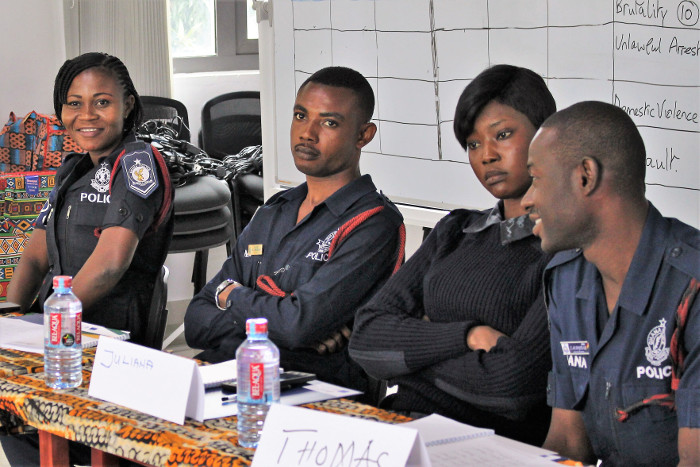-
28 September 2017
Category : Reportage
Ghana’s winding path towards Transparency and Anti-corruption
To date Ghana does not have a Freedom of Information law but it has made some positive strides to ensure transparency and accountability
 EU funded Accountability, Rule of law and Anti-corruption Programme (ARAP)
EU funded Accountability, Rule of law and Anti-corruption Programme (ARAP)In the past years, Ghana has made some positive strides to ensure transparency and accountability within its governance reforms. Some concrete commitments include the development and roll out of a 10 year National Anti-Corruption Action Plan (NACAP) as well joining in 2011 the Open Government Partnership.
As part of these efforts, there is also the five-year EU funded Accountability, Rule of law and Anti-corruption Programme (ARAP) currently implemented by FIIAPP. The objective of the programme is to contribute to current reform processes to reduce corruption and improve accountability, and compliance with the rule of law, particularly when it comes to accountability, anti-corruption and environmental governance. It does so through support key institutions, while at the same time increasing the ability of the public, civil society organizations and the media to hold government to account.
On one hand the programme works with state institutions to improve and strengthen the services to report, prosecute and adjudicate corruption cases. On the other, it strengthens state institutions, civil society and the media to create the conditions for citizens to demand accountability from the government and report corruption cases.
Against this backdrop, access to information is a critical stepping stone for anyone who wishes to hold the government to account. It is no surprise therefore that access to information has become a cornerstone of good governance and an important anti-corruption tool. Information is fundamental to make informed decisions. Information is also power. Where it is not freely accessible, corruption can thrive and basic rights might not be realised. People can hide corrupt acts behind a veil of secrecy. Those with privileged access to information can demand bribes from others also seeking it.

ARAP contributes to current reform processes to reduce corruption and improve accountability in Ghana Today, 28th of September, is the International Day for Universal Access to Information. Citizens and organizations across the world call on their leaders today to act upon the fundamental premise that all information held by governments and governmental institutions is in principle public and may only be withheld if there are legitimate reasons, such as typically privacy and security, for not disclosing it.
The International Day for Universal Access to Information was declared just over two years ago by UNESCO. Not many know however that this UN initiative has its roots in Africa, and is an outcome of advocacy of the African Platform on Access to Information (APAI). This is a concerted effort to remind us all – regardless of our job and daily life – that accessing information held by government officials and institutions is a fundamental human right established under international Law, covered by Article 19 of the International Declaration of Human Rights and Article 19 of the International Covenant on Civil and Political Rights.
Over the past 10 years, the right to information has been recognized by an increasing number of countries, through the adoption of a wave of Freedom of Information (FOI) laws. In 1990, only 13 countries had adopted national FOI laws, whereas there are currently more than 90 such laws adopted across the world.
To date Ghana does not have a Freedom of Information law, despite it has been debated in the country for almost 20 years: the actual bill being drafted in 1999 and then reviewed in 2003, 2005 and 2007 and is currently in Parliament. There are however, positive signs from the government affirming that the bill will be approved in the coming year together with the Office of the Special Prosecutor for Corruption.
Riccardo D’Emidio, Civic Education Expert – Accountability, Rule of law and Anti-corruption Programme (ARAP)
The views and opinions expressed in this blog are the sole responsibility of the person who write them.




